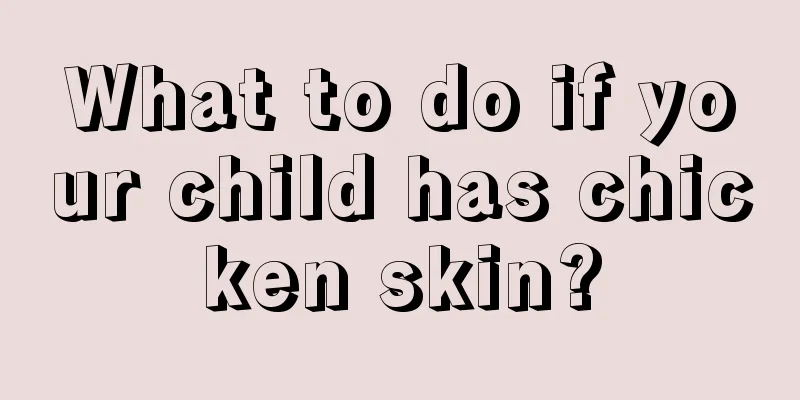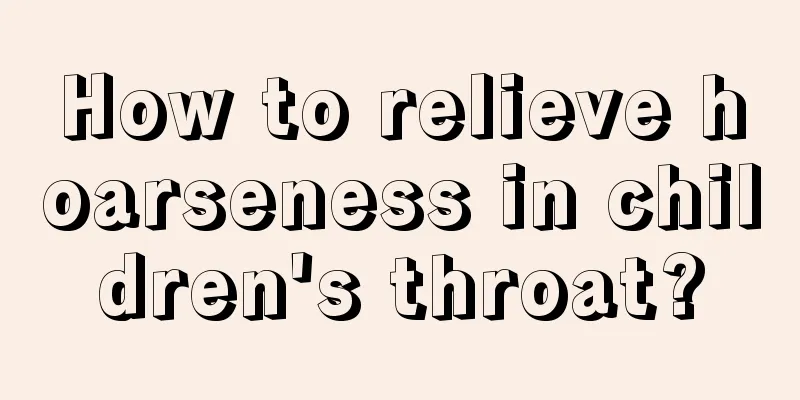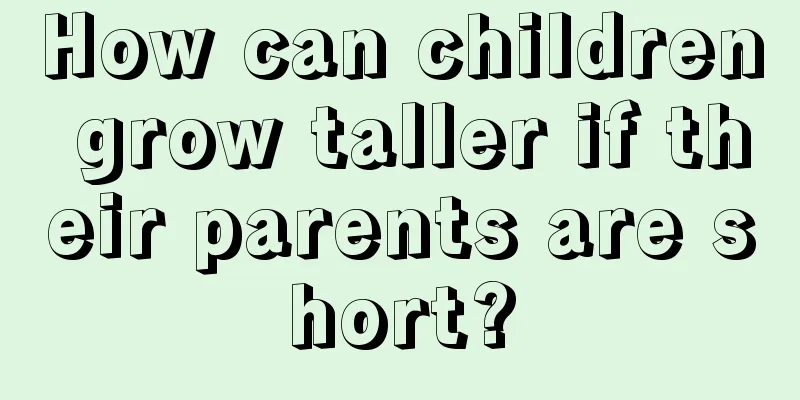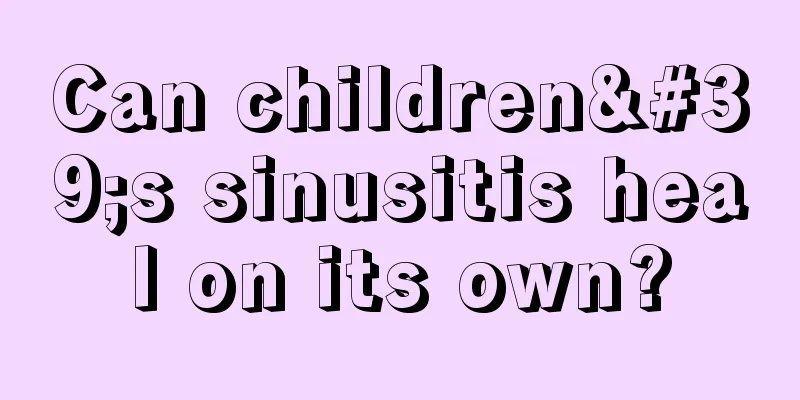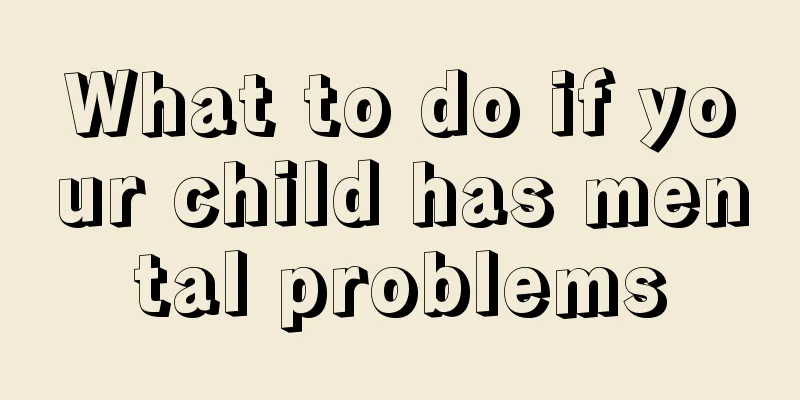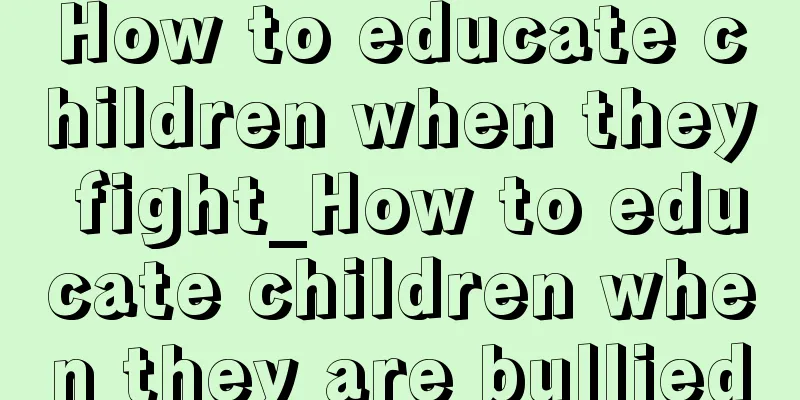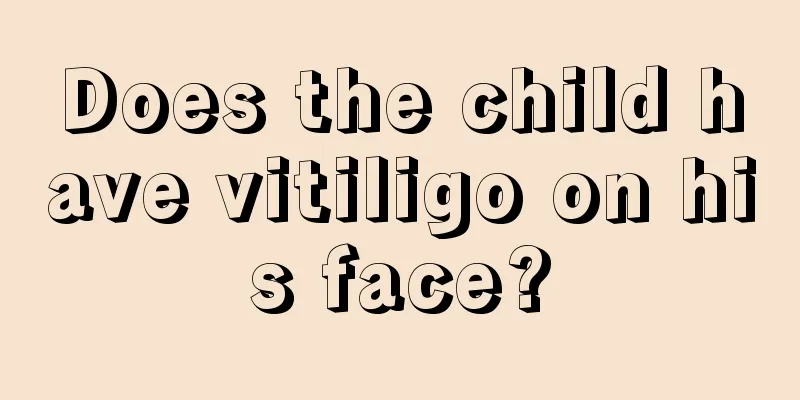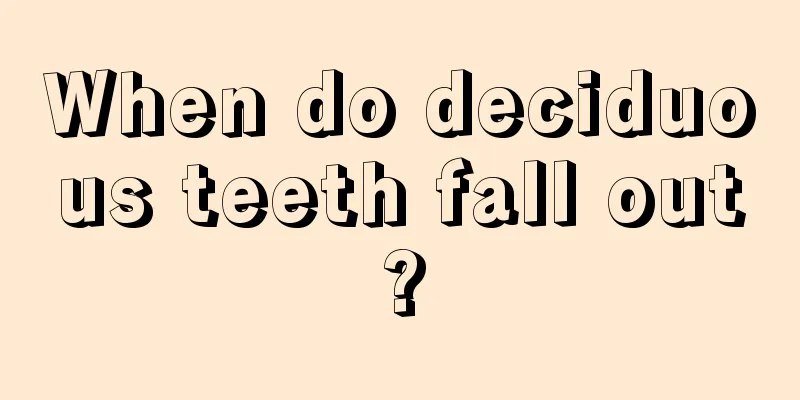What does a pacifier do?
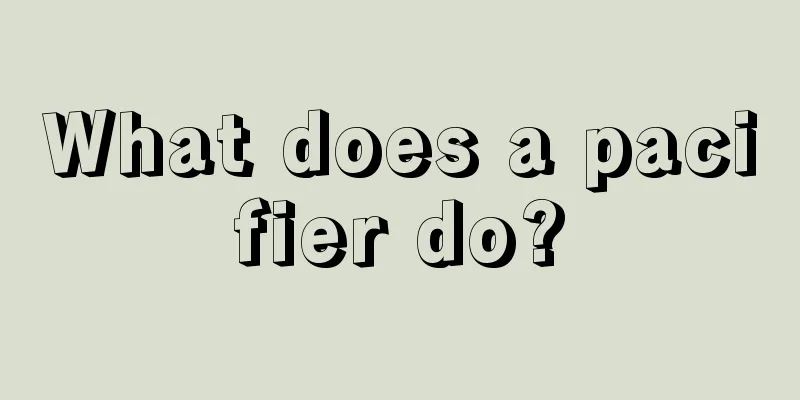
|
Many parents give their babies pacifiers, which can effectively relieve babies' emotions and enhance their sense of security. Generally speaking, there is no need to rush to stop using pacifiers for children under two years old, because pacifiers can train the baby's sucking ability, exercise some muscles in the mouth, and enhance the child's eating ability. 1. Advantages of pacifiers: Psychological experts believe that from the time a baby is born to around 2 years old, he or she enters the oral stage. Sucking through the mouth can help the baby transfer tension and enhance a sense of security. In addition to using sucking to eat and maintain growth and development, the sucking action can also promote the sense of touch near the lips and tongue, thereby obtaining a satisfied and happy feeling. Sucking is a way for babies to relieve their emotions. If there is no pacifier, many babies will achieve this goal by sucking their fingers. It is easy for them to get sick due to dirty fingers, or to cause peeling of the skin on their fingers. If the child still has this habit when he is a little older, it may affect the development of his gums. Experts believe that babies under 2 years old do not need to give up the habit of sucking pacifiers, because it can be used to train the baby's sucking and swallowing abilities, especially for low-weight premature babies. It can help improve their oral and gastrointestinal functions while achieving the function of self-soothing. 2. Disadvantages of pacifiers: (1) From a physiological point of view, since the baby's innate unconditioned reflex and sucking reflex will gradually disappear over time, if parents keep giving the baby a pacifier, it is undoubtedly strengthening this reflex, which will form dependence over time; (2) When the baby sucks the nipple continuously, air enters the mouth from the corners of the mouth as the baby swallows, and then enters the stomach. When the stomach cannot bear the capacity of milk and air, it will contract, causing milk regurgitation in children; (3) When a child sucks milk continuously, his gastrointestinal tract also moves reflexively. Frequent movements can easily cause intestinal spasms in the baby, causing abdominal pain. (4) Long-term use of pacifiers will affect the development of the baby's upper and lower jaws, and will also cause the baby to have a high palate, leading to malocclusion of the upper and lower teeth and an unsightly lip appearance. |
<<: What are the symptoms of bronchitis in children?
>>: What should I do if my child has a fever or diarrhea?
Recommend
What causes a child’s big belly? Parents, come and learn!
If a child has a big belly, the first thing to co...
Is laryngitis serious in children?
In our lives, many children suffer from pharyngit...
What is the main reason for a baby's fever and hot palms and soles?
A baby is the backbone of a family, but this back...
What causes hoarseness in babies?
What always accompanies children is crying. After...
How to correct children’s stuttering?
Children's stuttering is a problem that paren...
Treatment for infants with a body temperature below 36 degrees
Nowadays, infant diseases are rampant and many in...
Treatment of neonatal breathing with phlegm
Newborns' breathing with phlegm is one of the...
The formation of behavior habits of primary school students
When children are young, they are definitely igno...
Symptoms of swollen lymph nodes in the baby's abdomen
Many of us are first-time parents. There are many...
Pros and cons of rectal medication in children
Nowadays, there is a special treatment method for...
The baby suddenly eats less milk
Babies under one year old need a lot of breast mi...
The baby vomits out water
The baby's health concerns the whole family. ...
What should children eat to reduce internal heat?
Getting a fever is a very uncomfortable thing, an...
What are the treatments for tuberculosis in children?
Tuberculosis in children is a typical type of lun...
The child has a broken ear
Children are gifts from God to their parents. Eve...
